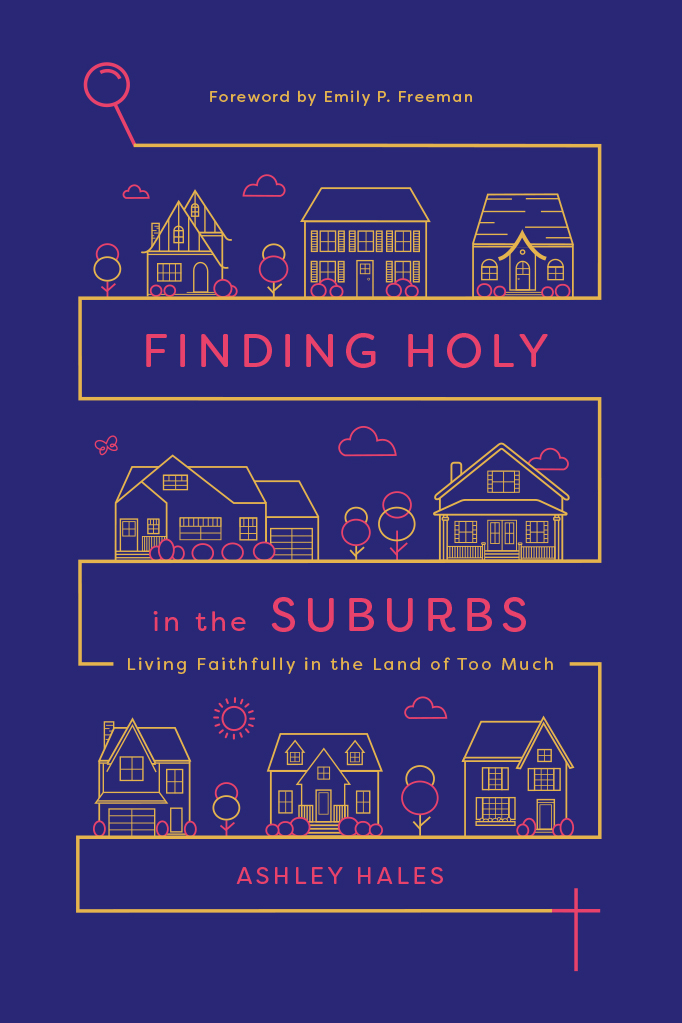Assumed audience: People thinking about cities and suburbs—especially but certainly not only other orthodoxy Christians.

Hales’ book would be a good read for small groups or church plant core teams in suburban contexts. But while its theology is good and its suggestions right, they are sometimes a little too comfortable.
Popular-level theological works have an incredibly difficult task: they have to say what is true in a package that is accessible to people who may have little theological background and even less inclination to deep theological reading. After seeing how badly most books rise to the challenge, I find that I come to popular theological books with a mix of skepticism that they will be any good and pity for the author who set out to accomplish such a difficult task in the first place. Ashley Hales’ Finding Holy in the Suburbs is the rare popular theological book that doesn’t disappoint, though — at least, not too much!
Hales found herself struggling deeply in the California suburbs she and her husband returned to after doing their Ph.D.’s in Scotland and doing ministry work in Salt Lake City. Her story, as she tells it, was one of scorning the suburbs when she left and scorning them all the more when she returned. It is, to be frank, a story with which I can sympathize all too well. I appreciated, though, that for all this book tells many a story of failure — capturing the note of authenticity that remains essential for millennials in particular — it is much more interested in the goodness of God than in Hales’ own failings. Hales does good work pointing away from suburban idols (and the idol of anti-suburbanism!) and toward the sufficiency of Christ, in short and readable chapters which stay on point in theology and application. I’d love to see many church-goers pick this up and read it. It would be a great read for suburban small groups, church plant core groups, and so on.
My one criticism of the book is that, for all that its applications are good and right, they’re also a bit too safe at times. Few of them would offend anyone; none of them are likely to upset the safe suburban social order. This is a small criticism as these things go, to be fair. In many cases Hales’ recommendations would not offend because they are things to which many Christian suburbanites already aspire — and it is good to be reminded of those aspirations when it is easy to fall into the norms of the world around us instead. Still, a “counter-liturgies” that were a bit less safe would have made this book stronger and sharper.